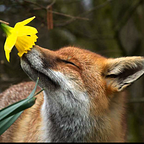“A Life On Our Planet” by David Attenborough
Doesn’t a story told by a person from their own experience feel more believable than a theoretical explanation? Like if a veteran explains that war is hell, we believe it because he or she actually experienced it. Or if an addict gets clean and says how they turned their life around, we tend to trust their method.
Well, David Attenborough has seen the world change during his 94 years traveling it. And now, he’s filmed his witness statement, “A Life On Our Planet” on Netflix, to share what he’s seen.
If you see one documentary, let it be this one, with Attenborough’s sophisticated yet simple narration that made “ Planet Earth “ so enjoyable to view in high definition back in 2006.
Watch it to get reacclimated with the severity of the problem we’re facing and why we need to rapidly shift to environmental sustainability.
The Holocene
For the past 10,000 years, the Earth has settled into a stable period with average worldwide temperatures not wavering up or down by more than 1-degree celsius. Not too warm, not too cold, the world developed a gentle, reliable rhythm — the seasons.
Scientists call this period on Earth, the Holocene.
The uncanny stability of the Holocene gave way to amazing biodiversity. Animals evolved and eventually evolved into us, humans, who learned to farm the land for food. The Holocene has been our Garden of Eden.
But this golden age will soon be a thing of the past. David explains how he’s seen the world change over his lifetime.
We Replaced the Wild with the Tame
As one of the first people to fly around the world and explore the wilderness, David documented untouched natural lands for decades. Here’s what he depicts:
Rainforests
More than half of all land animals live in rainforests, for which tree diversity is critical. But humans have turned huge areas of rainforest into monocultures of oil palm trees. Humans have cut down half of the world’s rainforests already and 3 trillion trees in total.
We have dual incentives to cut down trees: to use the timber and to farm the land once cleared.
Large fish play a major role in the flow of the oceanic nutrient cycle, without which, ocean life would die. Yet humans have removed 90% of the large fish in the seas.
Scientists learned in the 90s that the ocean has absorbed most of the excess heat caused by greenhouse gases released by people burning millions of years worth of organisms in the form of coal and oil.
Therefore, summer ice in the Arctic has declined by 40% in 40 years.
Fertile Land
Half of the fertile land on Earth is now farmland. 60% of the weight of all mammals on Earth is made up of animals humans raise to eat. The weight of all of the other non-human mammals on the planet, from mice to whales, makes up just 4%.
Since the 1950s when David started filming, wild animal populations on average have more than halved.
We Need to Rediscover How to Be Sustainable
David’s soft voice is comforting even when talking about this morose reality. And he offers a path forward to save the Holocene:
So, what do we do? It’s quite straightforward. It’s been staring us in the face all along. To restore stability to our planet, we must restore its biodiversity. We must re-wild the world. The trick is to raise the standard of living around the world without increasing our impact on the world. That may sound impossible but there are ways in which we can do this.
We need to rediscover how to be sustainable. To move from being apart from nature, to becoming a part of nature.
ACT ON CLIMATE
The pandemic has caused the economy to stutter and many people have subsequently lost their jobs. For families in this situation with newborns, the nonprofit Permanent Diaper Relief is helping ease that burden with a sustainable solution.
PDR assists families with 40 reusable cloth diapers per baby. If you know of a family in need or would like to help support the mission, click below for details.
Originally published at https://cleantechrising.com on December 1, 2020.
